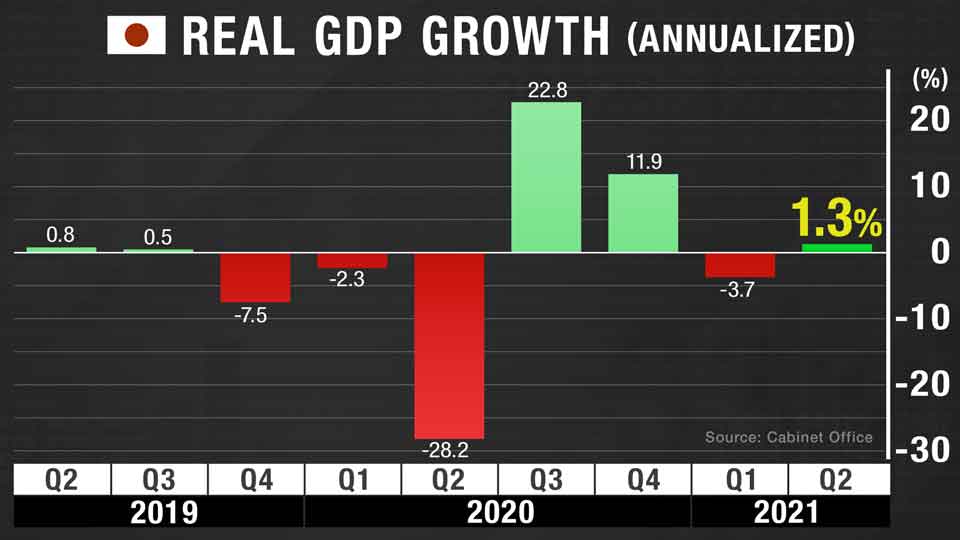
It’s a change of tune from several weeks ago, when many economists sounded optimistic. Japan’s vaccine rollout had picked up speed, and a rosy picture was emerging with consumer spending expected to fuel a quick and strong rebound.
In the April to June quarter, the economy did manage to pull out of negative territory, recording an annualized 1.3 percent growth. Business investments and exports were relatively strong and personal consumption was better than expected.
But it was not quite the rebound needed. The previous quarter saw the economy shrink by 3.7 percent growth. Economists are forecasting slow growth, at least until the end of the year.

The government is hoping that around 80 percent of the population will be vaccinated by the end of October. Yet even as the rollout has gained momentum, coronavirus infections are on the rise. Many elementary schools are delaying the start of the new school term in an effort to protect children’s health. Fast food chains and department stores have been forced to close.
There is more bad news coming from Southeast Asia, where the pandemic is interrupting supply chains. That hurts Japanese manufacturers, including Toyota. The auto giant has announced it will cut global output by 40 percent in September.
Many experts now believe that it will be nearly impossible for the government to achieve its goal of bringing the economy back to a pre-COVID-19 level by the year-end.
The pandemic is also highlighting inequity in a host of areas. While company employees are provided with vaccinations—and are allowed to work from home—many casual workers and people employed by smaller firms do not enjoy the same benefits.
Profits are soaring for IT firms, telco providers and tech manufacturers, thanks to strong demand from stay-at-home workers. But it is a very different story for the restaurant, hotel and transportation industries.
Many low-income families are struggling to make ends meet, while the wealthy are benefiting from monetary easing and high stock prices.
Japanese government officials can make use of an unspent 30 trillion yen ($270 billion) from last year’s COVID-related stimulus packages to help people who are struggling to pay their daily bills. But officials want private enterprise to play a part too.
Suggestions include two-day leave entitlements for workers to get vaccinated, and companies that are recording breathtaking profits are being encouraged to offer pay raises so their workers can spend more — and give the economy a much-needed boost.

